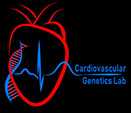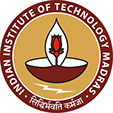
Cardiovascular Genetics Laboratory
Bhupat and Jyoti Mehta School of Biosciences
IIT Madras, India

Welcome to Cardiovascular Genetics Lab!
What are cardiovascular diseases and why should we give emphasis to these diseases? Cardiovascular diseases (viz., coronary heart disease, heart failure, stroke etc.) affect a large section of the young and adult population and are the leading causes of morbidity/mortality worldwide. Recent studies have documented that although the mortalities associated with cardiovascular diseases are declining in high-income group countries such as Western Europe and North America, the burden of cardiovascular diseases continues to rise in the middle-income and low-income group countries including India. Notably, South Asians have a greater prevalence of cardiovascular risk factors than the rest of the world, and India itself is estimated to have more than half of the world’s heart disease patients at present. These diseases not only cause enormous loss of human lives, but also lead to huge health care cost, tremendous economic and social burden, declining national productivity and quality of life. The determinants of cardiovascular diseases are multi-factorial, complex and often inter-related. Stress, inadequate physical activity, smoking, higher intake of fats and sodium, lower consumption of potassium, fruits and vegetables are well-known risk factors for cardiovascular diseases. Besides these, a strong influence of genes in cardiovascular complications has also been established. Hypertension (elevated arterial blood pressure), dysregulated catecholamine homeostasis, dyslipidemia, increased oxidative stress, cardiac remodeling, protein misfolding are some of the chief risk factors for cardiovascular diseases. However, the pathogenesis of cardiovascular diseases remains incompletely understood.
We, at the Cardiovascular Genetics Lab, are interested in unravelling the genetic and molecular bases that underlie cardiovascular diseases with an aim for their early diagnosis, prognosis, management and treatment. In this direction, to elucidate how alterations in key genes/molecular factors contribute to disease phenotype, we study human subjects (cases versus controls), utilize rodent models (of hypertension, atherosclerosis and diabetes) as well as perform investigations at the cellular level (employing cultured cell lines). Moreover, we use multidisciplinary approaches to delineate the molecular interactions and signaling pathways that are disrupted in these pathological conditions. We are currently focusing on three broad aspects of cardiovascular complications which will facilitate identification of biomarkers and potential therapeutic agents as outlined below.
Discovery of functional genetic variations in Indian populations and their associations with cardiovascular diseases
We have discovered a number of genetic variants in the chromogranin A gene promoter and exonic regions (that translate to bioactive peptides such as anti-hypertensive/cardioprotective catestatin and dysglycemic pancreastatin) using case-control approach in Indian populations. Chromogranin A expression is dysregulated in several cardiovascular diseases. Linkage disequilibrium analysis and genetic association studies identified several genetic variations in chromogranin A locus that enhance the risk for cardiovascular/metabolic disorders in the Indian population. Furthermore, using various experimental (cellular/biochemical/biophysical/physiological assays), and computational (molecular modelling, molecular dynamic simulations, docking of peptides with their receptors) we demonstrated that these variants alter the expression of chromogranin A or potency of catestatin /pancreastatin peptides. Similarly, we have recently identified functional variants in the regulatory region of matrix metalloproteinases and established that these variants alter the risk factor for cardiometabolic disorders. Results from these studies provide new molecular mechanisms contributing to cardiovascular diseases. These studies have implications for development of diagnostic and therapeutic strategies for management of the cardiovascular diseases.

Discovery of a common naturally-occurring amino acid variant (glycine/serine at 364 amino acid position due to G/A SNP; rs9658667) in catestatin region of chromogranin A gene in Indian populations. People carrying the catestatin 364Ser variant are at higher risk for hypertension. (Hypertension. 2016; 68: 334–347)

Schematic representation of the mechanistic basis for higher blood pressure in serine variant (CST-Ser)-harboring subjects as compared to those carrying the wild-type catestatin (CST-WT) via modulation of nitric oxide production in vascular endothelial cells. (Hypertension. 2016; 68: 334–347)
Mechanism of differential expression of candidate genes of hypertension in rodent models
Rodent models are widely used in laboratories due to their sequence similarity with the human genome to gain molecular insights into complex human diseases. We sequence and compare the regulatory regions of various candidate genes implicated in cardiovascular diseases in inbred mouse models of genetic hypertension [viz., Blood Pressure High (BPH), Blood Pressure Normal (BPN) and Blood Pressure Low (BPL) animals]. Through this approach, we identified several novel polymorphisms which offered molecular insights into the genetic basis for the differential expression of candidate genes in these hypertensive models. For example, we have identified polymorphisms in the promoter region of beta-Hydroxy beta-methylglutaryl-CoA (Hmgcr, the rate-limiting enzyme in the cholesterol biosynthesis pathway) and cystathionine gamma-lyase (Cth, a key enzyme involved in endogenous hydrogen sulfide production) genes which altered binding affinities of several transcription factors, such as n-Myc, Max, c-Fos (in the case of Hmgcr) and c-Rel, HOXA3, IRF1 (in the case of Cth) suggesting a role for these transcription factors in essential hypertension. Using a similar approach, we have identified several polymorphisms in the regulatory regions of Hmgcr gene in Spontaneously Hypertensive Rat (SHR, a rat model of genetic hypertension and related cardiovascular complications) as compared to its normotensive control, Wistar Kyoto rat (WKY). These results provide new insights into the mechanisms of regulation of candidate genes in cardiovascular diseases.

Genetic variations in the promoter region of cystathionine gamma-lyase gene (Cth) between genetically hypertensive BPH and genetically hypotensive BPL mice alter binding affinities for c-Rel, HOXA3 and IRF1. (J Mol Cell Cardiol. 2017;102:61-73)

Cover page in the January 2017 issue of JMCC featured our findings on the mechanism of diminished synthesis of the vasodilator H2S in genetically hypertensive BPH mice as compared to genetically hypotensive BPL mice (J Mol Cell Cardiol. 2017;102:61-73)
Transcriptional and post-transcriptional regulation of cardiovascular/ metabolic syndrome susceptibility genes
Dysregulated gene expression is the underlying cause for many pathological conditions including cardiovascular diseases. Using a combination of computational tools and cell culture experiments, we have characterized the promoter regions of several candidate genes. We have also identified the roles of transcription factors, microRNAs that are involved in modulating the gene expression. For example, we have identified transcription factors involved in the regulation of Hsp70, renalase, monoamine oxidase A and B. The regulation of renalase gene by transcription factors Sp1, STAT3, and ZBP89 is the first report on the transcriptional regulation of renalase. Similarly, we, also for the first time, reported the involvement of miR-29 and miR-146 in the post-transcriptional regulation of mouse and human renalase gene expression. Besides this, the role of miR-27a in the regulation of Hmgcr and miR-1224, miR-300 in the regulation of MAO-B gene expression at the post-transcriptional level are first reports on the regulation of Hmgcr and MAO-B genes by miRNAs. Interestingly, most of these genes are differentially expressed in human, rodent models of pathological conditions signifying their roles in cardiovascular complications. These findings may lead to the development of novel therapeutic agents for clinical management of cardiovascular complications.

Systematic studies from our lab revealed the mechanism of transcriptional regulation of Renalase, for the first time, to our knowledge. Sp1 and STAT3 play crucial roles for up-regulating renalase gene expression under patho-physiological conditions. (Biochemistry. 2014;53:6878-92)

Mechanism of post-transcriptional regulation of Renalase gene was also revealed by us, for the first time, to our knowledge. MicroRNAs miR-29 and miR-146 modulate Renalase gene expression. A common genetic variation in the 3’-UTR of renalase (C/T; rs10749571) generates a binding site for miR-146a and alters the risk for cardiometabolic disorders. (J Mol Biol. 2015;427:2629-46)